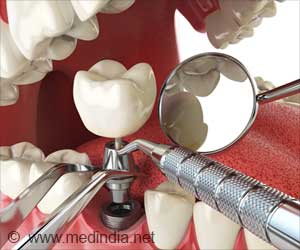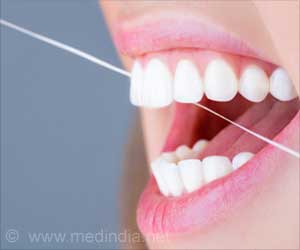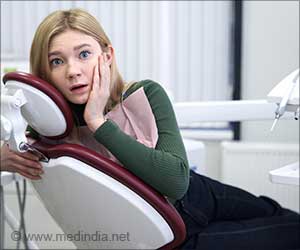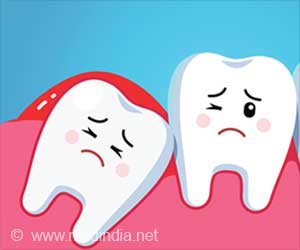Patients with obstructive sleep apnea (OSA) have a high prevalence of nocturnal teeth grinding, or bruxism.
Patients with obstructive sleep apnea (OSA) have a high prevalence of nocturnal teeth grinding, or bruxism. This is seen particularly in Caucasians.
New research presented at CHEST 2009, the 75th annual international scientific assembly of the American College of Chest Physicians (ACCP), found that nearly 1 in 4 patients with OSA suffers from nighttime teeth grinding; this seems to be especially more prevalent in men and in Caucasians compared with other ethnic groups.It is estimated that 8 percent of the general US population suffers from bruxism, a condition frequently associated with a preexisting dental or jaw disorders, as well as stress.
"The relationship between obstructive sleep apnea and sleep bruxism is usually related to an arousal response. The ending of an apneic event may be accompanied by a number of mouth phenomena, such as snoring, gasps, mumbles, and teeth grinding," said Shyam Subramanian, MD, FCCP, Baylor College of Medicine, Houston, TX. "Men typically have more severe sleep apnea, and perhaps may have more arousal responses, which may explain the higher prevalence of teeth grinding in men. Besides, men characteristically tend to report more symptoms of sleep apnea than women, such as snoring, loud grunting, and witnessed apneas."
Other factors that might help explain the relationship between sleep apnea and teeth grinding include anxiety and caffeine use.
"High levels of anxiety can lead to bruxism, and untreated sleep apnea is known to cause mood disturbances including depression and anxiety," said Dr. Subramanian. "Daytime sleepiness from sleep apnea may cause a person to ingest caffeine, and this has also been associated with a high risk of bruxism."
Through a retrospective chart review, Dr. Subramanian and his colleagues, from the Baylor College of Medicine, Houston, TX, assessed the prevalence of bruxism and gastroesophageal reflux (GERD) in 150 men and 150 women with OSA. Each group consisted of 50 Caucasians, 50 African-Americans, and 50 Hispanics. Results showed that 25.6 percent of patients suffered from teeth grinding, while 35 percent of all patients with OSA complained of nocturnal heartburn and GERD symptoms.
Advertisement
"Bruxism can be both a daytime syndrome as well as a nighttime syndrome, but it is bruxism during sleep, including short naps, that causes the majority of health issues," said Dr. Subramanian. "Studies do suggest that when sleep bruxism is related to OSA, certain therapies, including continuous positive airway pressure, may eliminate bruxism during sleep."
Advertisement
Source-Eurekalert
RAS















